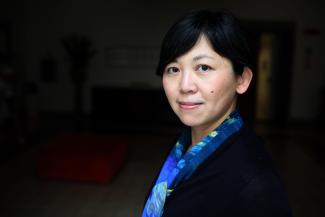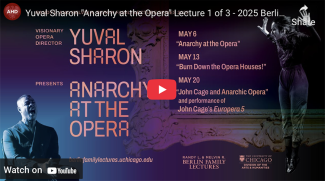
2026 Berlin Family Lectures: Yiyun Li
Save the Date
March 31, April 7 and 14, 2026
The next Berlin Family Lecture speaker will be the internationally-acclaimed writer Yiyun Li. She is the author of 11 books that have been translated into more than 20 languages and a recipient of the PEN/Malamud Award, the Windham Campbell Prize in Fiction, and a former MacArthur Fellow. More details to come.
Watch the 2025 Berlin Family Lectures

Past Berlin Family Lecturers

Explore the insights of previous world-renowned scholars and artists who have shared their expertise with our audiences for more than a decade.
See our past lectures »
About the Berlin Family Lectures
Inaugurated in 2014 with a gift from Randy and Melvin Berlin, the Berlin Family Lectures brings to campus leading scholars, writers, and creative artists from around the world. Each academic year, the visitor delivers an extended series of lectures, participates in the university’s intellectual community, and develops a book for publication with the University of Chicago Press.
